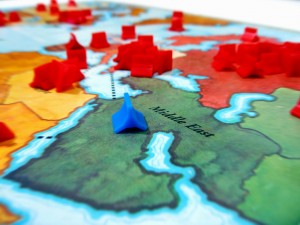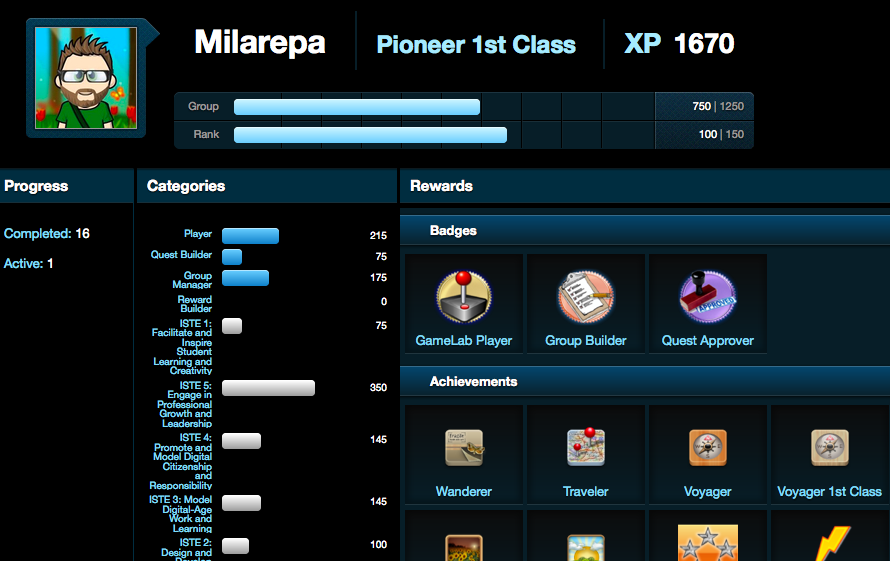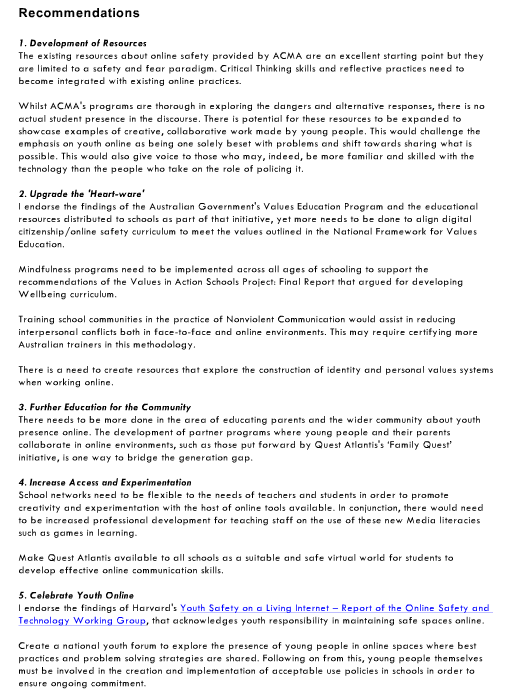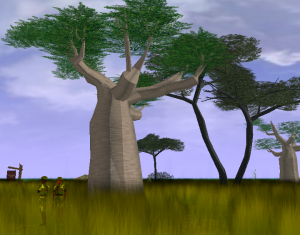‘Do not keep children to their studies by compulsion but by play.’
~ Plato 427–347 BCE
(This blog post is drawn from a longer report written to explore why and how we might create a Minecraft server at our school to support student centred learning projects.)
Why, in a time of an already crowded curriculum and a seemingly reduced amount of time available to teachers and students, should we consider playing computer games in the classroom? Why engage in ‘play’ at all? To turn our back on developing a ‘games-based learning culture’ in schools would buck emerging global and local trends and significantly reduce the positive impact games have on young people’s ability to solve future problems.
Firstly, let’s examine the value of ‘Play’ before we situate it in the context of games like Minecraft. To help, you could try ‘experiencing’ this blog post a bit like a game. Whereas in blogs you might start reading at the beginning and go to the end, games are not always so neatly linear. Computer games in particular are adept at pre-testing your experience and assigning suitable challenges. So, If you are a relative noob (beginner) you may choose to start reading at Level 1 – Risky Business and go on from there. Level 2 – Putting the ‘fun’ in ‘funeral’ is for readers who are interested in reading a personal account of the lessons learned in implementing one game-based learning platform, so you could start there. If, however you are keen to read a summary of contemporary research on the value of play and games you can skip level 1 and move onto Level 3 – Back to the Future. Or, you could start at the Endgame – Hi Ho! Hi Ho! It’s off to work we go! to see where our journey with Minecraft actually began. Part two of this blog will recount where we are up to right now.
So, choose your level and get started!
Level 1 – Risky business
At the core of this argument is the need for young people to play regardless of the platform or technology. By ‘Play’ I mean to inquire, to imagine, to take risks, to experiment, to create, to fail, to prototype, to revise, to destroy, to innovate, to rebuild and transfer or manifest our play into real-world domains. Play is something lead by the players, not necessarily imposed in order to meet external requirements; though some flexible parameters could be developed in order to focus creativity on specific areas of inquiry.
Adam Savage of Mythbusters makes the statement that,
“If you don’t get a chance to fail, if you don’t get a chance to try things and not get them right the first time, and you keep on doing it until you do get that specific kind of success, then you become so risk-averse that you in fact get an allergy to trying new things. And that is the worst thing we can do to kids.” Mindshift
Play based activity is all about exploring our potential to manage the potential losses and also to celebrate the gains made through taking risks.
Play is not wasted time- valuable life skills are learned whenever we play. Early Childhood specialists know that play has numerous benefits that prepare children for their future. Emotional benefits include positive developments in self-concept and self-esteem as well as the stress-managing effects of laughter and joy. Cognitive or mental benefits that arise through play include the refinement of problem solving skills and also transference of academic content or skills into a more personalised domain. It may seem obvious to remark that play also fosters socialisation and a sense of connection with others. (Leisure Education, Indiana University)
But play has wider reaching potential as argued by the American Institute of Play, which sees the fundamental principle of play as being vital in developing engaged citizenry. As an organisation, the Institute of Play develops and support social institutions such as schools to build play-based learning back into a curriculum that has been stripped of its presence. The Institute argues that play-based activities develop ‘...critical skills like systems thinking, creative problem solving, collaboration, empathy and innovation. We believe they have a unique relevance as social tools to rebuild the foundations of citizenship.’
Level 2 – Putting the ‘fun’ into ‘funeral’
The school in which I work is already an innovator in the area of games for learning and has proven itself on the world stage through extensive participation in and experimentation with online games. We knows that Play reaps reward, particularly through the implementation of Quest Atlantis. In QA ‘players’ are not just playing for entertainment, to gain points and defeat opponents, they are framed as persons with a clear intentionality who have agency and are expected to master legitimate, rigorous content in order to shape their environment.
The implementation of Quest Atlantis was not without difficulties, not the least of which being network issues and complexities arising from updated software. Two significant observations about student engagement with computer game based learning have impact upon the recommendations for this proposal. These observations have arisen primarily because they are what, in essence, killed the implementation of Quest Atlantis at our school and has lead us to explore alternatives.
Firstly, as enumerated by Jane McGonigal in her book Reality is Broken, games cease to function when they are mandatory – games are something one independently chooses to do, not forced to do for the sake of a grade. By linking mandatory curriculum to Quest Atlantis missions, there was a marked drop off in creativity within the space, by which it is meant that fewer students explored the possibilities of designing, creating and exploring for the self-directed content that is embedded in the game. Basically, the students became less self-directed and less prone to explore when we, the teachers, directed their endeavors. Game-play needs to remain an aspect of a student’s personal choice in order for it to inspire creativity and promote engagement. Not all creative choices and decisions need to be made by the oldest person in the room.
Secondly, when the teachers did not ‘play’ the game themselves or express interest the students on the whole were not inclined to see the value either. In some cases, teachers even sabotaged the take-up of the game by convincing students of its lack of relevance based on their personal frustration with the methodology. This highlights the need for teachers to experience game-based environments not only in terms of their educational value in how it might ‘deliver’ content but also for personal enjoyment.
Level 3 -Back to the Future!
The easily converted see the value in games because they already value what game-play offers. Some need more convincing, specifically research by significant people in their fields. Worldwide consultative organisations such as EDUCAUSE, the Twenty-First Century Literacy Project and academics in the cognitive sciences are championing the place of games and projecting its impact in the future.
The 2012 Horizon report, the tenth such report charting emerging technologies in education published by EDUCAUSE, asserts the effectiveness of game-based approaches in maximising learning gain. It recommends game-based learning approaches in whatever form – whether board game, card game or massively multiplayer online games – to be adopted within the next two to three years in order to maximise the potential and connect curriculum related learning to what is already a space where young people are creatively and socially engaged.
The report radically challenges the stereotype of the antisocial gamer engaged in trivial entertainment-based activity by strenuously arguing that, ‘the greatest potential of games for learning lies in their ability to foster collaboration and engage students deeply in the process of learning. ‘ (Horizon report, p7)
Game methodologies are rewarding to learners in a number of significant ways, which accounts in some way for the 61.9 million players in online social games. The sense of directionality offered for their efforts- the ‘quest’ and promise of success, the engagement with story, opportunities for problem solving, resilience training through ‘failing levels’ and the role of collaboration/socialisation were all documented as valuable qualities in game-based learning design and had immediate value in the educational domain.
Another organisation considers the impact of game-based methodologies in challenging existing paradigms to prepare students for the challenges of the future as digital citizens. The 21st Century Fluencies Project was instigated by committed teachers who seek to ‘make learning relevant in our new digital age.’ They have developed five key fluencies and resources for schools that support student success. Of these five the following three are strongly developed through the use of creative play spaces such as Minecraft, particularly if applied to problem or project based learning challenges.
- Creativity Fluency – ‘artistic proficiency adds meaning through design, art and storytelling. It regards form in addition to function, and the principles of innovative design combined with a quality functioning product.’
- Collaboration Fluency – ‘Virtual interaction through social networking sites and online gaming domains has become a part of the Digital Generation’s and our daily lives. We are interacting with people all over the world with electronic and wireless communication technology. This has literally meant the “death of distance”, which has tremendous potential for education.’
- Solution Fluency – ‘Solution fluency is the ability to think creatively to solve problems in real time by clearly defining the problem, designing an appropriate solution, applying the solution then evaluating the process and the outcome.’
Cognitive science supports and extends the findings of both these organisations. James Paul Gee is the most cited authority on game-based learning. Based at Arizona State University, he researches and documents the ways games engage sound pedagogical principles and reflect developments in cognitive science. In his article on ‘Good Video Games and Good Learning’, Gee enumerates 16 key learning principles that his research says denotes a quality game with pedagogical value. Below is a selection of the principles that would be met by engagement with sandbox games such as Minecraft.
- Interaction – developing positive communication and teamwork on group design challenges
- Production – collaborating on and co-designing building projects
- Risk-taking – experimenting and refining solutions
- Customisation – designing personal avatar skins, texture packs and world modification
- Agency – acting upon personal interests and passions
- Well-Ordered Problems – responding to real world problems with simulations
- Pleasantly Frustrating – developing resilience and perseverance
- Explore, Think Laterally, Rethink Goals – playing to refine and redefine success
Whilst American-based research is valuable, it does not always illuminate the local perspective. Thankfully this was addressed by the first extensive Australian study into the value of game-based learning for both teachers and students, published by the Victorian Department of Education and Early Childhood Development in 2011. From the 2011 Innovating with Technology – Game–based learning research trials report it is clear that at least one State Education department sees significant value in the use of game-based learning.
End game- Hi ho! Hi ho! It’s off to work we go!
The research is clear – game-based learning integrated with appropriate pedagogy fosters the skills and attitudes needed to develop problem solving. Most significantly, games like Minecraft encourages risk taking, experimentation and innovation.
But it is to the players that the greatest inspiration and motivation comes in our school’s quest to celebrate play, creativity and problem solving…
It is mid 2011 and year 7 has just recently embarked on a case study of mountain environments, specialising in the Himalayas in Nepal as part of its Geography studies. They are motivated to learn, mostly because they are able to choose which task they want to complete in the order that suits them.
Walking through the dark space between the Library and the Design and Technology rooms, pulling my jacket against myself to warn off the chill, I spy six middle school girls similarly huddling together with their laptops open for warmth. Obviously they are playing computer games- their faces have that unique driven, yet happy expression of someone absorbed in play.
‘Hey girls,’ I say, hoping they’ll look up and return the welcome. They don’t; instead they either angle their screens away or make attempts to close them. (Sad that they interpret genuine inquiry as a threat to their enjoyment, don’t you think?) ‘I was just wandering what you guys are playing. It’s something good, I gather.’
‘It’s Minecraft,’ one says with a tone that, whilst kindly, suggests that I wouldn’t be interested or have even heard of it and could I go away please. I remain persistent. Hesitatingly, they show me what they have been building…
This is one of those ‘Ah-ha!’ moments where light bulbs appear over cartoon characters heads. ‘Do you,’ I begin, ‘think you could use this for your Geography assignment?’
There’s a beat; a moment of incredulity then an warm, enthused expression I cherish that says – just you wait and see! A light bulb illuminating other light bulbs.
And within a week we have three pieces of machinima – two presentations explaining how mountains form (the students make mountains grow over time) and one dramatic ascent of Everest. Later we learned that Rome wasn’t built in a day but the Great Wall of China could be recreated in three weeks but only if we included the Forbidden City.
Minecraft at our school had begun.
Watch this video for more of an overview of our project…
Read more about our personal journey in part two







Recent Comments